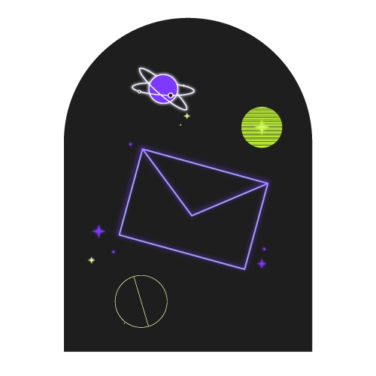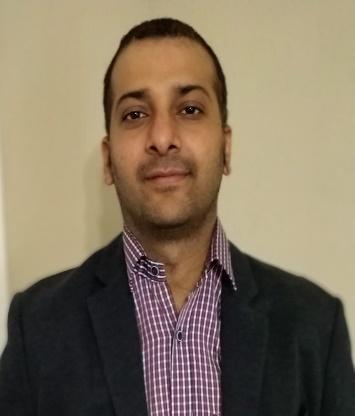A job interview can be a nerve-wracking experience so it’s important to be prepared to answer tough software testing interview questions. There are some typical questions about software testing that you’re likely to be asked but you also want to be ready to answer the tough questions that other candidates might not be prepared for. You should be ready to answer any challenging questions accurately to give yourself a strong advantage over others who are interviewing for the same position.
The 10 Toughest Software Testing Interview Questions
The questions and answers listed below are some examples of what could come up during an interview. Read through them to get an idea of what to say when you are asked some of the more difficult questions around software testing. You can never over-prepare for the job you want.
1. Toughest performance testing interview question: “How would you execute a performance test on a mobile application?”
This question is asked to make sure you know your way around an application for web, desktop, and mobile equally. It’s a QA question looking at protocols and clarifying that you can work on something trickier, like a mobile device. In your answer, point out that while web and desktop applications are similar to mobile apps, you need to set up a proxy and put in SSL certificates in the device being targeted so you can capture requests. It helps to suggest tools such as MitmProxy for this process.
Bonus Question
I asked Samer Desouky, the Founder and Chief Quality Officer at TestPRO, to weigh in on this topic. They said that they'll often ask this question during the interview:
""If you are requested to test a mobile app, What is the best way to model your tests and why?""
The recommended response for this question goes something like this:
In order to achieve a systematic coverage for app movements we can use state transition test technique as long as it can help to cover the system navigation.
2. Toughest automation interview question: “Is automation testing Black Box testing or White Box testing?”
This is a question that may be used to make sure you understand different scenarios and their requirements. The answer that automation testing can be both black and white box testing, depending on the automation being done. Be clear that you understand and know the different circumstances when black or white box testing should be used.
Bonus Question
I also asked Chris Ford (the Head of Software Testing at Exceleron Software and previous PM and QA consultant at Fex) for another tough interview question. He said he'll ask job candidates this question about test automation:
"Explain the architecture of a test automation framework that you have created in the past. How did you plan the framework, and what steps did you take to optimize the framework?"
Obviously, your answer to this question will depend on whether or not you have experience creating a test automation framework—it's definitely a good question to prepare for if you're applying for more advanced QA roles.
3. Toughest QTP Interview question: “Can you launch two instances of QTP on the same machine?”
While the quick answer to this is “no”, the intent of the question is much more important. Interviewers want to know that you can actually use standard testing tools. They may ask more than one question like this to make sure you know what you are doing. Be sure that you understand the tool and have used it thoroughly so you don’t get tripped up on the basics.
4. Toughest UFT Interview Question: “What is Xpath?”
This is one of the QA interview questions that are similar to answering the above question about QTP. Your interviewer wants to know you understand the necessary techniques before you join the testing team. Explaining that Xpath is a way to ID an item in QTP/UFT shows that you have the background and ability necessary for the job. The more you can go into detail, the better the chance that you’ll impress the interviewer.
5. Toughest manual testing interview question: “What Is the Pareto Principle in Software Testing?”
This is a quality testing interview question you should know the answer to as it branches off into other areas. It is not a stand-alone question. Answering that the Pareto Principle is the 80/20 rule and understanding how it works are important. Stating that 80% of all bugs should be within 20% of the modules of the program being tested will lead to further discussion around this topic.
6. Toughest Database Testing Interview Questions: “What is performance testing and what are the issues that can affect it?”
Answering software tester interview questions such as this shows you can both do the work and manage others. You know that performance testing shows the speed of a computer system’s performance but it also reflects that you can assess problem areas such as manpower and the cost of tools. Pointing out what is problematic shows real problem-solving skills.
While preparing for performance testing questions, you may also want to familiarize yourself with industry-leading QA automation tools to broaden your skill set
7. Toughest Unit Testing Interview Question: “Explain code coverage.”
This is the full extent to which a particular application is tested. It shows areas of code that aren’t tested yet so you can make sure it’s done and get things ready for deployment. Again, this type of question and answer are meant to show your functional ability and understanding of the job and its details.
8. Toughest QA Engineer Interview Question: “Have you written test cases with no documents?”
You want to say yes to this as it shows that you are a flexible and competent engineer. Say you collaborate with the development team, do thorough research, look at older similar tests, and talk to the actual developer. Show that you can figure it out, take initiative, and be a team player.
9. Toughest QA Manager interview Question / Test Lead interview question: “How would you help an employee who is having difficulty?”
This is a question that requires both your creativity and communication abilities to shine through. They want to know that you can motivate others and act as a coach. Show them that you want to improve not only products but also employee performance. Talk about teaching and coaching and make suggestions for further education for the employees in your answer.
Bonus Question
Desouky also offered up this question which they'll often ask candidates at TestPRO, where Desouky serves as Founder and Quality Officer:
There's a debate between PO and developer regarding search from behaviour. What is the best response you can give in this situation?
The suggested response: Asking the team to focus on defining a clear and sharp acceptance criteria should kill the debate.
10. QA Tester interview question / QA Analyst Interview question: “How do you work as a team member?”
This sounds like an easy question but, in reality, your answer defines whether you are a suitable candidate or not. It is one of the quality assurance interview questions that are not technical but still critical for a team's success. Answer in a way that shows you are a team player but are also pressured into accepting anything that isn’t up to standard.
Final Thoughts
Being interviewed is not an easy or non-stressful process. To help prepare and to get more software testing tips, sign up for The QA Lead Newsletter to put yourself at the top of the candidate list.



